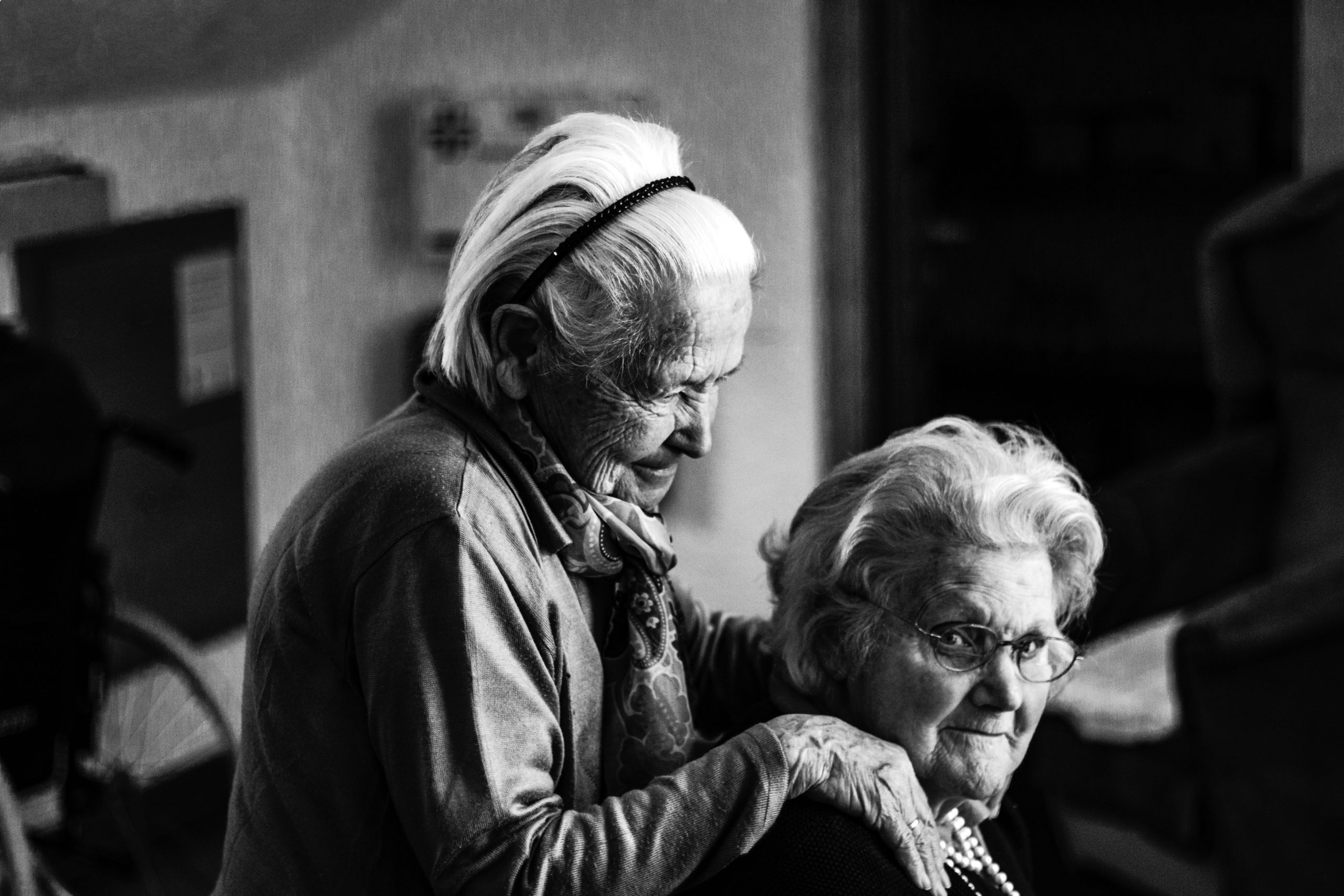Recognizing and Responding to Elder Abuse

Elder abuse, which is defined as any intentional or negligent act by a person that causes harm or distress to an older adult, is a serious and growing public health issue. This type of abuse can happen in hospitals, care facilities or someone’s private home and usually involves someone in a position of power or trust. The extent of elder abuse is difficult to know because many cases go unreported, and the isolation caused by the COVID-19 pandemic has put even more seniors at risk. Past studies show that between 8-10% of seniors have experienced some form of abuse.
Unfortunately, many victims are scared or embarrassed to ask for help. Others feel trapped in their current living situation or in some cases, they may not realize that what they are experiencing is abuse. If you are concerned about the safety of an older adult in your life, learn more about the types of abuse, the signs to watch out for and how to help.
Types of Elder Abuse
Violence against a senior can take the form of neglect or physical, emotional, financial or sexual abuse, often with more than one type of abuse happening at the same time. Isolated seniors with poor physical or mental health or those with cognitive impairments are more likely to experience abuse. There are several forms of elder abuse, including:
- Physical: Intentional use of force or harm causing injury or physical pain. This may include hitting, pushing, burning, shaking, unnecessary physical restraint or the misuse of medication.
- Emotional: Actions that decrease a person’s sense of worth and dignity like humiliation, intimidation, asserting control, name-calling, harassment, infantilization (treating an older adult like a child) or forced isolation.
- Financial: Illegal, unauthorized or improper use of an older persons’ resources. For example, stealing assets, belongings or money, forging signatures, pressuring an older adult to make changes to a will or sign legal documents they don’t understand, or living in their home without paying expenses as requested.
- Sexual: Forced or unwanted sexual interaction of any kind, including when an older adult has a disability like Alzheimer’s that prevents them from providing consent.
- Neglect: Carelessness or disregard for the wellbeing of an older adult. This can include refusing to provide nourishment, clothing, shelter, medication, medical attention or assistance with other activities of daily living. Although keep in mind that in some cases these behaviours can be due to a lack of experience, education or ability.
Signs of Abuse
Elder abuse can be difficult to spot because the symptoms may be mistaken for cognitive decline or physical frailty. While one sign doesn’t necessarily indicate abuse, these are some concerning symptoms and behaviours to watch out for:
- Fear or passiveness when interacting with a family member, friend or caregiver
- Sudden changes in behaviour including anxiety and depression
- Unexplained physical injuries like bruises, sprains or burns
- Odd or unlikely explanations for injuries
- Isolation from friends and family
- Withdrawal from normal activities
- Poor hygiene or bedsores
- Dehydration or malnourishment
- Mismanagement of medication—either over or undermedicated
- Denied access to assistive devices like walkers, canes or glasses
- Sudden change in financial situation, unpaid bills, missing belongings or big purchases
- Change in living situation e.g., a family member unexpectedly moving in
What to Do?
If you think that a senior is in serious or life-threatening danger, call 911 now. If the danger is not immediate but you suspect abuse, you need to take action. Have a private conversation with the older adult to find out what is going on. Ask questions like, ‘How is everything at home?’ and ‘Do you feel safe?’ Avoid making assumptions, listen to their experiences and tell them that you want to help. Never put your loved one or yourself in further danger by confronting the abuser.
Elder abuse can have many devastating effects on the health and well-being of an older adult. It can destroy relationships with friends and family, create serious financial implications for the future and even lead to death or long-term disability. This type of abuse will not stop unless someone steps in to help.
For the best next steps, call the 24/7 Seniors Safety Line at 1-866-299-1011. This service offers live counselling, safety planning, community resources and referrals for older adults experiencing abuse or neglect in over 200 different languages. The safety line is also a resource for concerned family members, friends or service providers.
If the older adult denies the abuse, but you are still worried, you can make an anonymous report through Crime Stoppers at 1-800-222-TIPS. If the victim lives in a retirement or long-term care home in Ontario, you are legally required to report any suspected abuse. Contact the Director at the Ministry of Health and Long-Term Care at 1-866-434-0144 or the Registrar of the Retirement Homes Regulatory Authority at 1-855-275-7472, depending on where they live.
You may also like:
